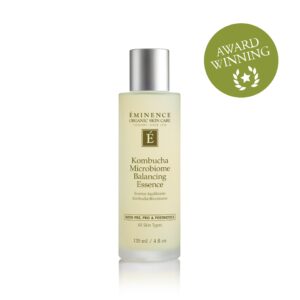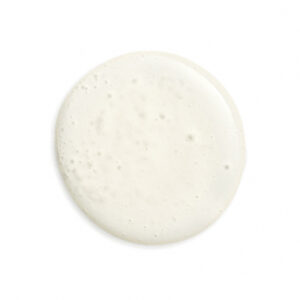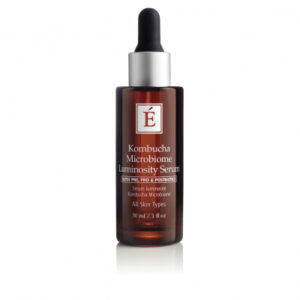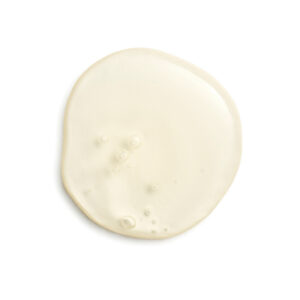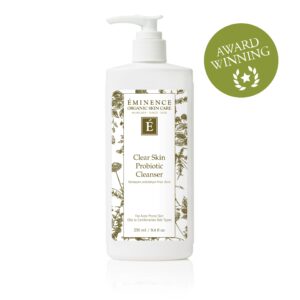Probiotic skin care: what is it and why you should use it

You’ve no doubt heard all about probiotics for health and wellness. But have you heard them mentioned as a skincare ingredient? That’s right! While probiotics are beneficial for gut health, they’re also great for the skin too. How you may ask, do they help your skin? Read on to learn everything you need to know about probiotic skincare and why you need it in your routine.
What are probiotics?
To put it simply, probiotics are microorganisms (“good bacteria”) that help promote good health, especially in your digestive system. They are crucial to balancing the “bad bacteria” in your body. As stated by WebMD: “Probiotics are live bacteria and yeasts that are good for you, especially your digestive system.” In addition to improving digestion, they promote healthy blood sugar and hormone levels, assist in regulating your metabolism and give your immunity a boost. Probiotics are considered beneficial as they can help repopulate good bacteria that may be lost due to diet, medication or certain health conditions.
Common sources of probiotics are fermented foods, such as yoghurt, sauerkraut, miso, kombucha and even pickles! Typically, when discussing the benefits of probiotics, we are referring to the gut flora which consists of hundreds of microorganisms that ensure your metabolic activities remain healthy and effective. However, probiotics also pack a punch in skin care. The American Academy of Dermatology states, “[Probiotics] have been shown to help with clearer skin, decreased skin sensitivity, redness and inflammation … You may also see a reduced appearance of fine lines and wrinkles, and increased elasticity.”

Three sources of probiotics
These friendly bacteria occur naturally in your digestive tract, but can also be found in a variety of foods, supplements and even in skin care products. If you’re thinking of taking advantage of the health and beauty benefits of probiotics, here are three sources:
1. Probiotic supplements
Due to the rising popularity of probiotics as a health product, supplements are easy to find — and are a convenient way to get your “good bacteria.” You can find these supplements in health food stores, pharmacies and even grocery stores.
Interesting fact: A healthy intestinal tract hosts over 100 trillion friendly bacteria. To keep these microorganisms topped up, an effective supplemental dose of beneficial bacteria should include at least 5-30 billion viable bacteria a day.
2. Probiotics in food
If supplements aren’t your thing, you may want to consider incorporating probiotic-rich foods into your diet. Foods like kombucha drinks, yoghurt, kimchi, sauerkraut and miso are all packed with healthy bacteria.
Interesting fact: Sauerkraut is not only extremely rich in healthy live cultures, but might also help with reducing allergy symptoms. This pickled cabbage is also rich in Vitamins B, A, E and C.
3. Probiotics in skin care
Probiotic-rich products are believed to balance the microbiome on the skin. As International Educator Brian Goodwin Brian Goodwin explains: “The skin’s surface is home to a delicate balance of microorganisms, like bacteria and other microbes. This mix of living organisms is known as the microbiome,” which defends the skin from environmental stressors and harm. But if good organisms are outnumbered by harmful bacteria, the microbiome falls out of balance. This can disrupt skin barrier function, leaving your skin vulnerable to dehydration or irritation.
Topical probiotics can help balance the bacteria associated with conditions such as acne and eczema. Acne is one of the most promising conditions to treat with topical probiotics because bacterial imbalance and inflammation contribute to certain types of acne. Applying probiotics can help soothe any flare-ups as well as normalise the skin’s natural bacterial and moisture balance, helping it to “reset.”
Probiotic skin care products are most effective when they can be massaged in or left on to absorb into the skin. This allows the probiotics to positively impact the moisture barrier and balance the skin. Depending on your skin type and concerns, you may not need probiotics for every step of your skincare routine and may prefer to incorporate them only into a few areas. For example, if you have a dry skin type and are dealing with some eczema or odd blemish, using a probiotic face mask once a week is an excellent option. If you are an oily skin type trying to manage more frequent blemishes, incorporating probiotics in your daily cleansing and moisturising — as well as a weekly face mask — helps to balance the bad bacteria that may be contributing to breakouts.
Product Picks
-
Award Winning, Kombucha Microbiome, Toniques & Toners for All Skin Types
Kombucha Microbiome Balancing Essence 120ml
$109.00 inc. GST0 out of 5 -
Kombucha Microbiome, Serums, Oils & Concentrates
Kombucha Microbiome Luminosity Serum 30ml
$199.00 inc. GST0 out of 5
Discover all our Kombucha Microbiome products and find the nearest Eminence spa partner to you.
Will you be adding probiotics to your routine? Let us know on our social media.

